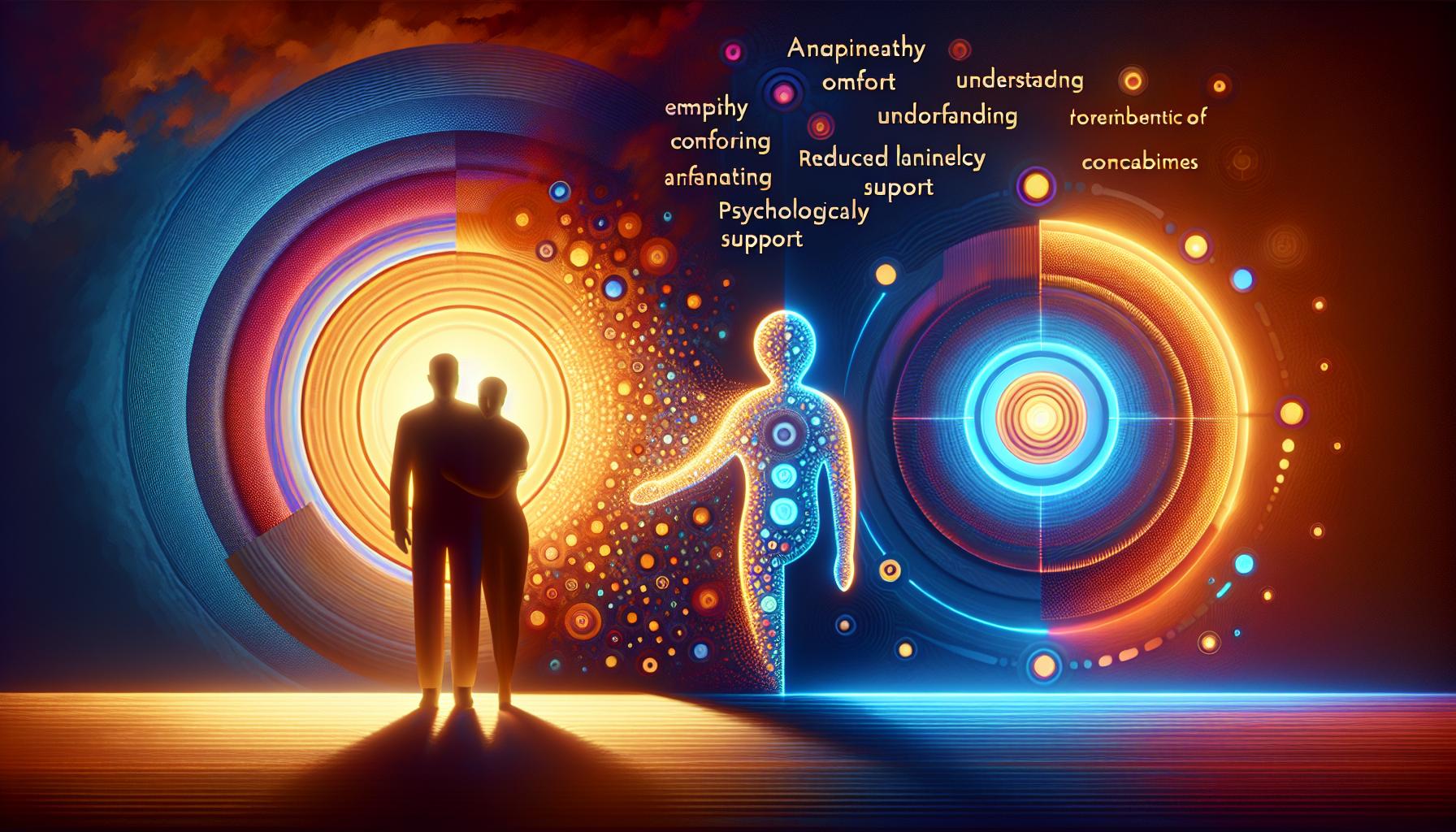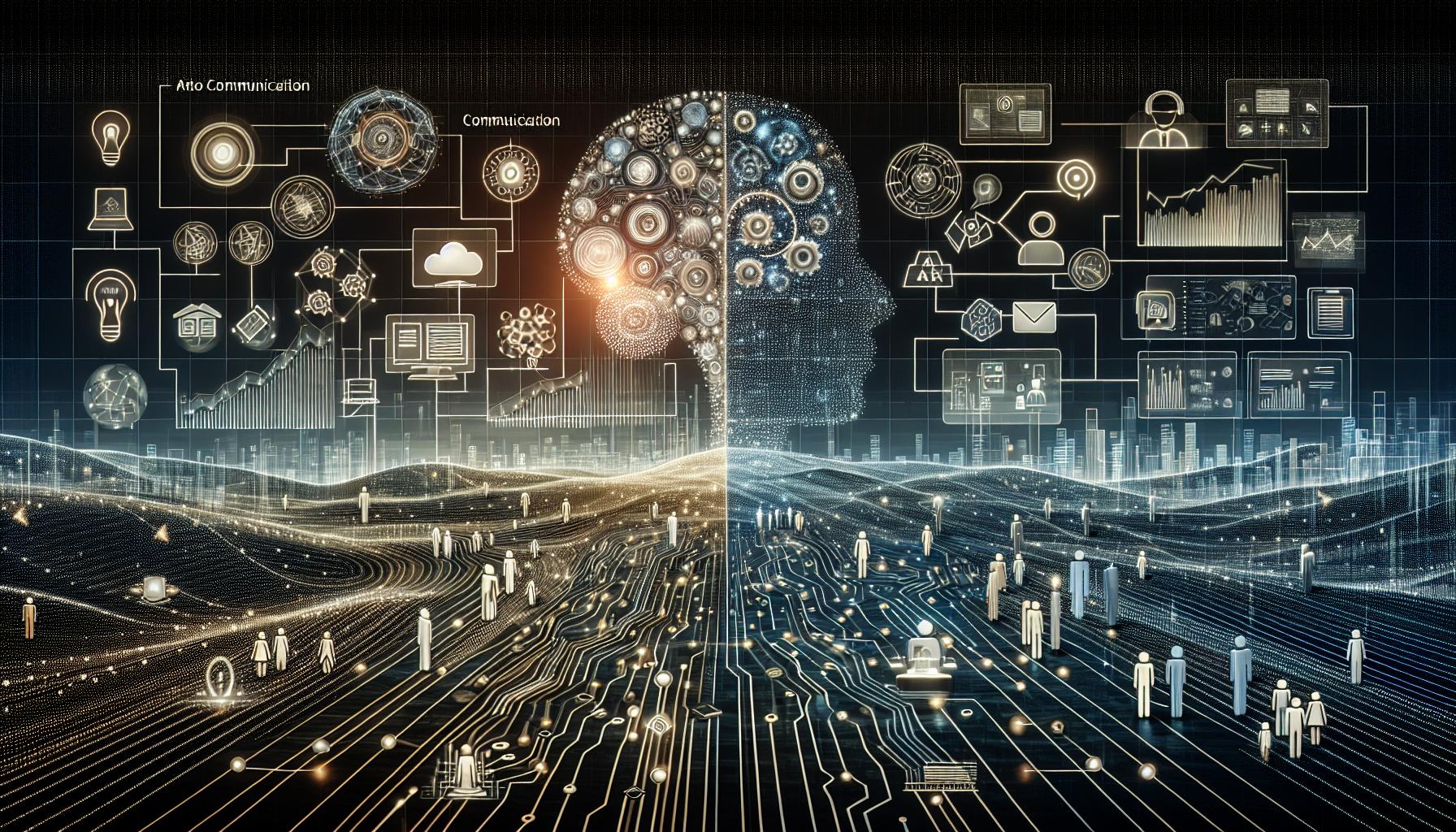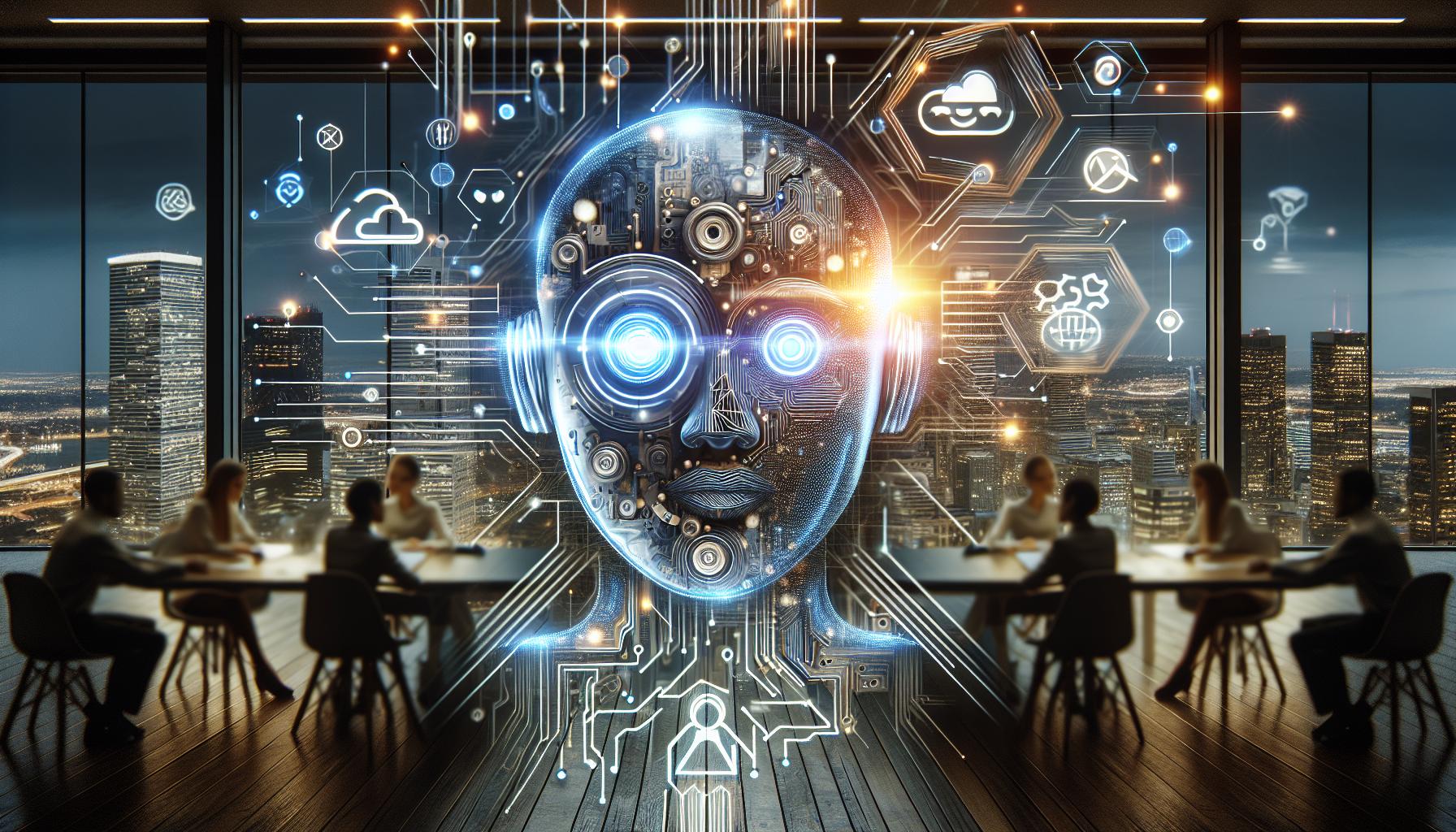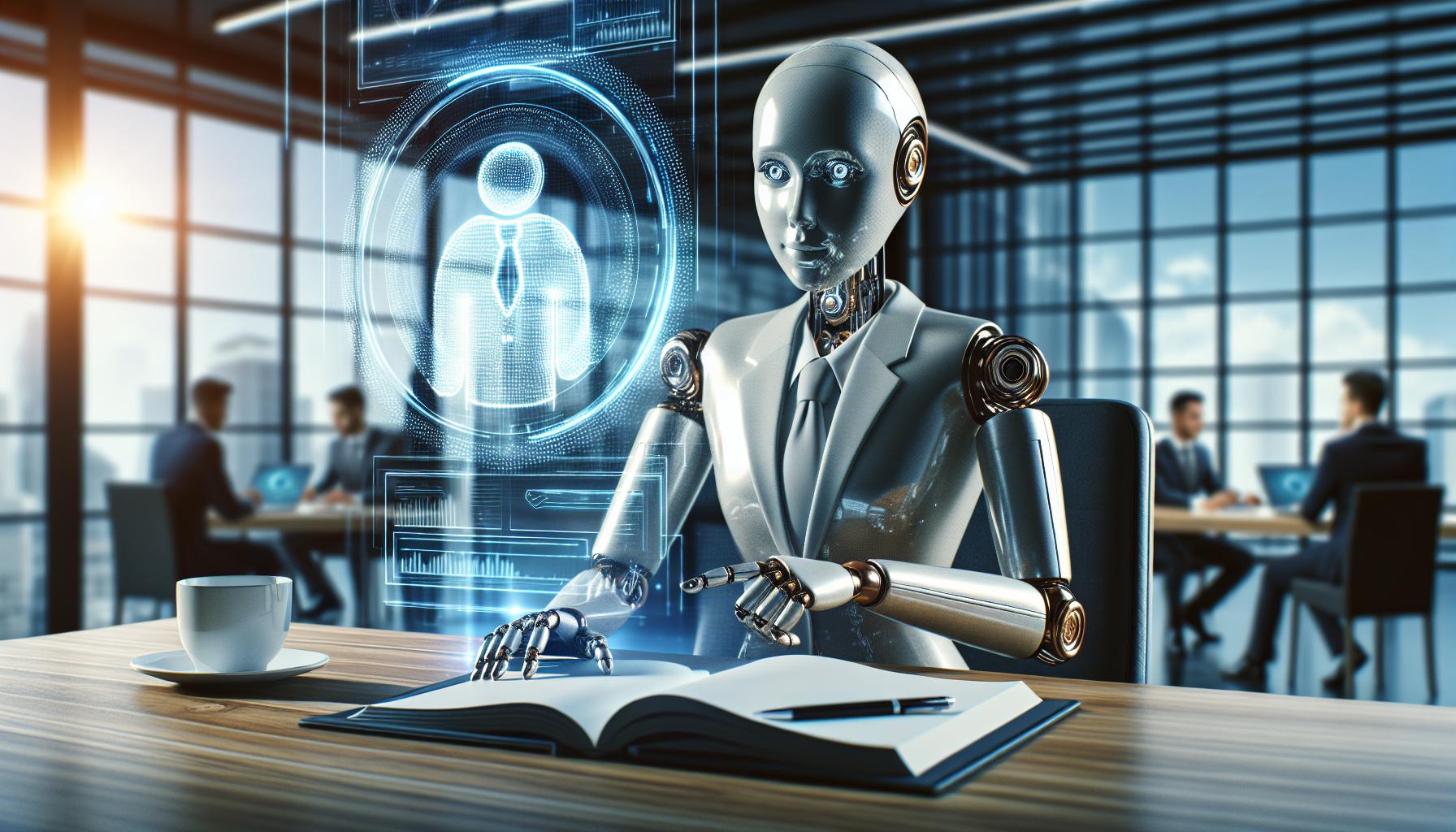AI Companions: Revolutionizing the Fight Against Loneliness

Introduction
The concept of Artificial Intelligence (AI) companions has transitioned from the realm of science fiction to reality. These advanced technologies, capable of offering personalized and interactive social experiences, present a promising remedy for those grappling with chronic loneliness. Tony Prescott, a cognitive robotics professor at the University of Sheffield, delves into this potential in his book 'The Psychology of Artificial Intelligence.' Prescott envisions that A.I. could play a significant role in mitigating the global epidemic of loneliness, which manifests in dire consequences for both physical and mental health. This blog will explore the features that make A.I. companions effective, the potential long-term psychological impacts, and the economic disparities influencing their accessibility.
The Features That Make A.I. Companions Effective in Combating Loneliness
AI companions have a unique set of features that make them highly effective in addressing feelings of loneliness. One of the primary attributes is their ability to provide personalized interactions tailored to the user's needs and preferences. These interactions are made possible through advanced algorithms and machine learning techniques that enable A.I. to understand and respond to human emotions in a nuanced way.
For instance, A.I. companions like Replika use natural language processing (NLP) to engage in meaningful conversations with users. The ability to simulate real human interaction helps in building a connection that feels genuine. Furthermore, A.I. companions can remember past interactions and adjust their responses accordingly, offering a sense of continuity and emotional support that is essential for combating loneliness.
Another crucial aspect is the accessibility of A.I. companions. Unlike human companionship, which may not always be available, A.I. companions can be accessed anytime and anywhere through smartphones or other devices. This constant availability ensures that individuals have a reliable source of support whenever they need it, making it easier to cope with feelings of loneliness.
Moreover, A.I. companions can help maintain and enhance social skills. Regular interaction with A.I. can encourage users to practice conversational skills, thereby improving their ability to engage with human beings. This is particularly beneficial for individuals who may have withdrawn from social interactions due to prolonged periods of loneliness or social anxiety.
By fostering a sense of self-worth and providing a safe space for expression, A.I. companions help break the cycle of loneliness. Users often report feeling more understood and valued, which can significantly uplift their mental well-being and encourage more positive social interactions with both A.I. and human entities.
Potential Long-term Psychological Impacts of Relying on A.I. Companionship Over Human Interaction
While the benefits of A.I. companionship are evident, concerns about the potential long-term psychological impacts of relying on A.I. over human interaction cannot be overlooked. One of the primary risks is the potential for excessive dependence on A.I. companions. As A.I. continues to improve in providing comforting and personalized interactions, users may find themselves engaging more with their A.I. companions at the expense of real human relationships.
This over-reliance on A.I. could lead to social isolation, where individuals may prefer interactions with A.I. over attempting to build or maintain human connections. Such isolation can further exacerbate feelings of loneliness in the long run, creating a paradox where the solution becomes part of the problem. Additionally, prolonged disengagement from human interactions can hinder the development of essential social skills, making it even harder to form meaningful relationships in the future.
Moreover, the emotional support offered by A.I. companions, while helpful, may not fully replicate the depth and complexity of human empathy and understanding. Human relationships are inherently multifaceted, involving shared experiences, emotions, and mutual growth, which AI, no matter how advanced, may struggle to completely emulate.
There is also the concern about privacy and emotional security. Users of A.I. companions often share deeply personal information and emotions, trusting that their interactions are private. However, the data collected by these A.I. systems could be vulnerable to breaches or misuse, raising ethical questions about the security of emotional data. Users need to be aware of these risks and the potential implications for their mental well-being.
Lastly, the gradual integration of A.I. companions into daily life could alter societal perceptions of relationships and companionship. The normalization of A.I. as a substitute for human interaction might shift social norms and expectations, potentially diminishing the value placed on human-to-human connections.
Economic Disparity and Its Influence on the Effectiveness and Accessibility of A.I. Companions
The effectiveness and accessibility of A.I. companions like Replika are significantly influenced by economic disparities among users. In many cases, those who most need the companionship and support offered by A.I. are also the ones least able to afford it. This economic barrier can limit the reach and impact of A.I. technology, particularly among low-income individuals who may not have access to the necessary devices or internet connectivity.
For individuals who cannot afford traditional forms of therapy or counseling, A.I. companions provide a more affordable alternative. The cost-effectiveness of A.I. companionship makes it an attractive option for those with limited financial resources, potentially bridging the gap in mental health support. However, the disparity in access means that not everyone can benefit equally from this technology.
Moreover, the development and maintenance of A.I. systems require significant investment, which can drive up the cost of these services. Subscription models or one-time purchase fees can be prohibitive for economically disadvantaged users, further exacerbating inequality in access to mental health support.
Despite these challenges, there are initiatives aimed at democratizing access to A.I. companions. Programs that offer free or subsidized A.I. companion services to low-income individuals can help mitigate the economic barriers and ensure that more people benefit from this technology. Additionally, as A.I. technology continues to advance, the cost of development may decrease, making A.I. companions more affordable and accessible to a broader population.
Conclusion
AI companions hold great promise in addressing the widespread issue of loneliness. With their ability to provide personalized, accessible, and continuous support, they offer a viable solution for those suffering from chronic loneliness. However, it is crucial to remain mindful of the potential long-term psychological impacts and the economic disparities that influence access to these technologies. By addressing these challenges, we can harness the full potential of A.I. companions to improve mental well-being and foster more meaningful social interactions, both with A.I. and human beings.




